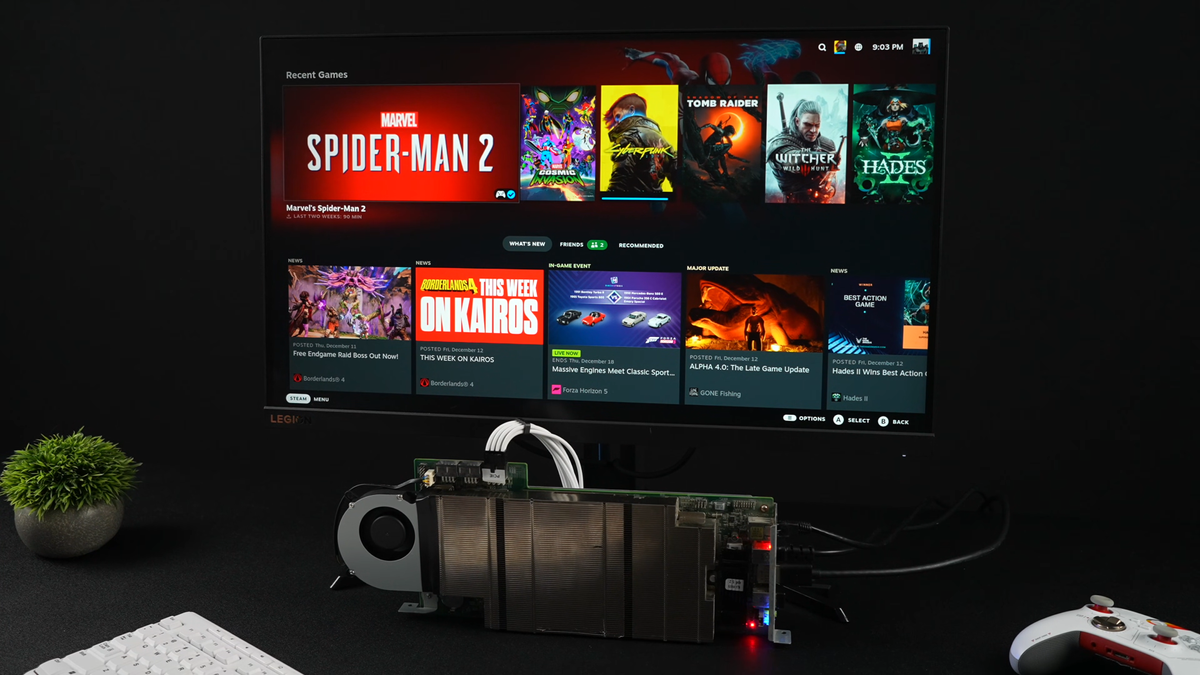There are a lot of Assassin’s Creed games, but only a handful are really important to understanding the series’ evolution. Among those is Assassin’s Creed Syndicate, which was released on October 23, 2015 for PC, PlayStation 4, and Xbox One. Beyond righting the ship after 2014’s Assassin’s Creed Unity stumbled out of the gate—something Ubisoft developers openly wrestled with in a video revealing Syndicate to the world—this entry began what’s become a staple of the franchise and action-adventure games more broadly: the ability to play as two fully formed protagonists.
Across various genres, games have let players inhabit multiple characters. But not all implementations are equal, and for franchises, this application has grown over time. A shooter like Halo has evolved from making Player Two a second Master Chief to making them the Arbiter or a fellow Spartan from the series’ canon, depending on the game; Rockstar’s Grand Theft Auto V (and its incoming sequel) has playable leads introduced over time, whereas its Red Dead Redemption games introduce a second character late into the story and preceded by the explicit death of the nominal lead.
When a game shifts to another point of view, it can introduce new mechanics (see Ratchet & Clank), create new feelings of vulnerability or power (The Last of Us), or just simply offer another perspective on its story (Metal Gear Solid 2).
 © Ubisoft
© UbisoftIn the examples above and plenty of others not mentioned, the developers treat having another protagonist like a big deal. When it comes to Assassin’s Creed Syndicate, that status was outside its control. Co-protagonist Evie Frye is the series’ third overall female lead, preceded by Aveline de Grandpré of Assassin’s Creed 3: Liberation and Assassin’s Creed Chronicles: China’s Shao Jun. But when it comes to mainline games, Evie was the first woman, which was quite important back then: Unity noticeably lacked playable women, because, according to creative director Alex Amancio, it would’ve been extra work to make them playable.
That controversy hung over Evie alongside concerns of how she’d be handled in Syndicate. Most of the marketing and the game’s own box art may have downplayed her in favor of her twin brother Jacob, but of the two’s overall positive reception, she came out on top, and her performance was even nominated for a DICE award in 2016.
From that popularity, Ubisoft began to embrace diversity, letting players customize their gender, ethnicity, or both in titles like Far Cry 5 and 6 and Immortals: Fenyx Rising, with the protagonist going by a gender-neutral name or title like “Deputy.” When it comes to Assassin’s Creed, 2018’s Odyssey lets players choose between the named Alexios and Kassandra, while 2020’s Valhalla has a male or female version of Viking-turned-Assassin Eivor Varinsdottir they can switch between at any moment or let the game dictate at specific moments.
While Eivor’s gender-switching is complicated by Valhalla’s approach to Norse mythology, both it and Odyssey consider their respective women the canonical leads across the franchise. It’s not entirely coincidental; a 2020 report revealed Kassandra was originally Odyssey’s sole lead before Alexios was also made playable, a decision made based off the incorrect assumption that a game solely starring a woman wouldn’t sell. In that same report, we learned that Syndicate originally had a more even split between Evie and Jacob, and 2017’s Assassin’s Creed Origins would’ve killed its main character, Bayek, and shifted perspective over to his estranged wife, Aya.
In working against the constraints of Ubisoft’s toxic management at the time, the Creed developers created a trend that’s helped define present titles. If they hadn’t, 2025’s Assassin’s Creed Shadows might not have its dual leads, Naoe and Yasuke—or at least, not as they are now. That game offered a notable shakeup to this approach in basing Yasuke off a real-world figure, and now that we know a future game is based in 16th-century Europe and a now-canceled title would’ve been during the Civil War, it’s possible either project, or future ones, would’ve further experimented with this.
 © Ubisoft
© UbisoftAlongside Assassin’s Creed Syndicate, more AAA games began to become two-handers, and several have made that a specific selling point. Like the aforementioned Far Cry games, titles like Mass Effect Andromeda and Fallout 4 treated their dual mains as basically interchangeable, made distinct primarily by their gender and voice actor.
But there’s been a growing emphasis on narratively justifying having multiple protagonists around. Sometimes, the justification is just right there on its face, like how the Spider-Man games naturally built up Miles Morales in early installments so he arrived fully formed in Marvel’s Spider-Man 2 as a co-lead for potential future installments. Other times, the second character’s importance is gradually revealed, as The Last of Us Part II does with Abby, or the way Clair Obscur: Expedition 33 cycles through three specific perspectives—Gustave, Verso, and both men’s sister Maelle—as the Expeditioners discover their place in the world.
In these instances, what the second (or third) protagonist contributes to the narrative matters as much or more as their playtime compared to who’s been positioned as the “main” up to that point, something developers are aware of and know how to leverage. Expedition did such a good job of characterizing Gustave, his death at the end of Act I has brought players to tears. (Being voiced by Daredevil actor Charlie Cox also doesn’t hurt.) Narratively and to the player, his absence hovers over the rest of the game, despite his playtime being so minimal in the grand scheme. So often, a character like him functions as an appetizer before the full meal of seeing them interact with a contemporary and potentially step aside for that second character to step up, maybe even take the reins going forward. Even in the games where the second character ends up significantly underserved, like the Arbiter across the Halo games, they’re still likely to end up with fans when all is said and done.
Unlike other well-worn tropes over the past decade, like rhythm games or battle royales, there’s not a real risk of two-hander games wearing out their welcome anytime soon. It’s a good mechanic that’s not obtrusive or a betrayal of the premise like co-op can be, and players seem to generally like the idea of trading off between multiple characters. Some games wouldn’t be what they are without it, and as Assassin’s Creed has shown us, it can help keep a series going just a little longer.
Want more io9 news? Check out when to expect the latest Marvel, Star Wars, and Star Trek releases, what’s next for the DC Universe on film and TV, and everything you need to know about the future of Doctor Who.








 English (US) ·
English (US) ·